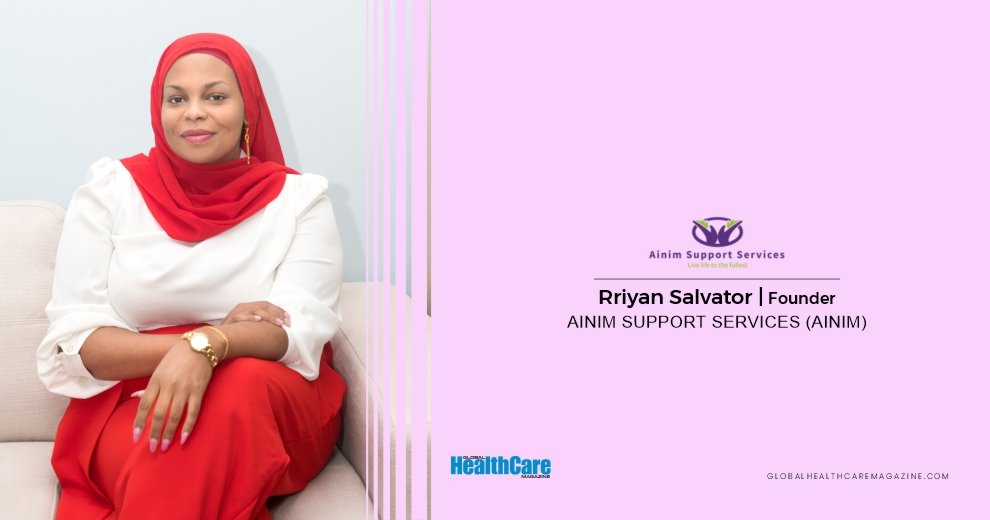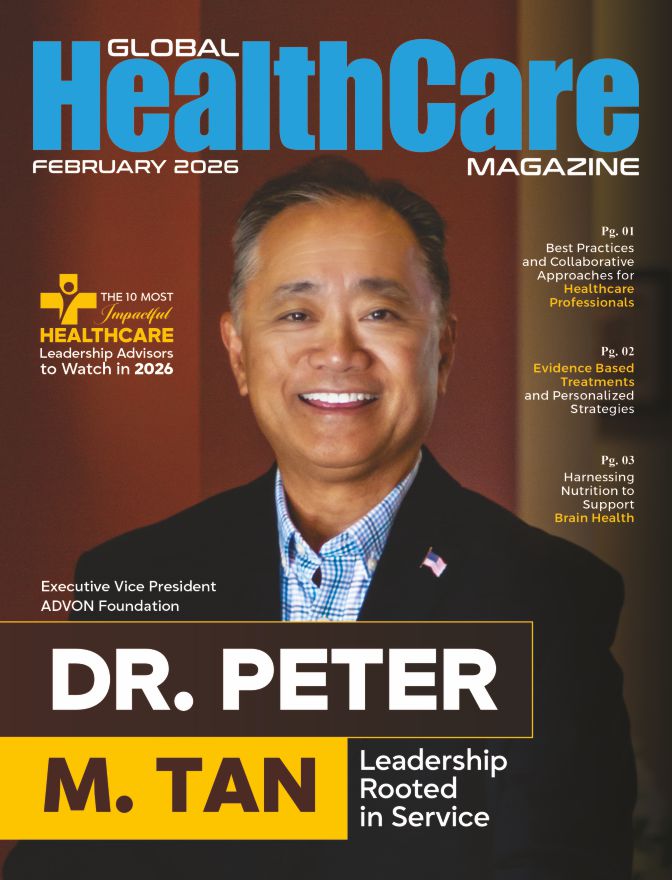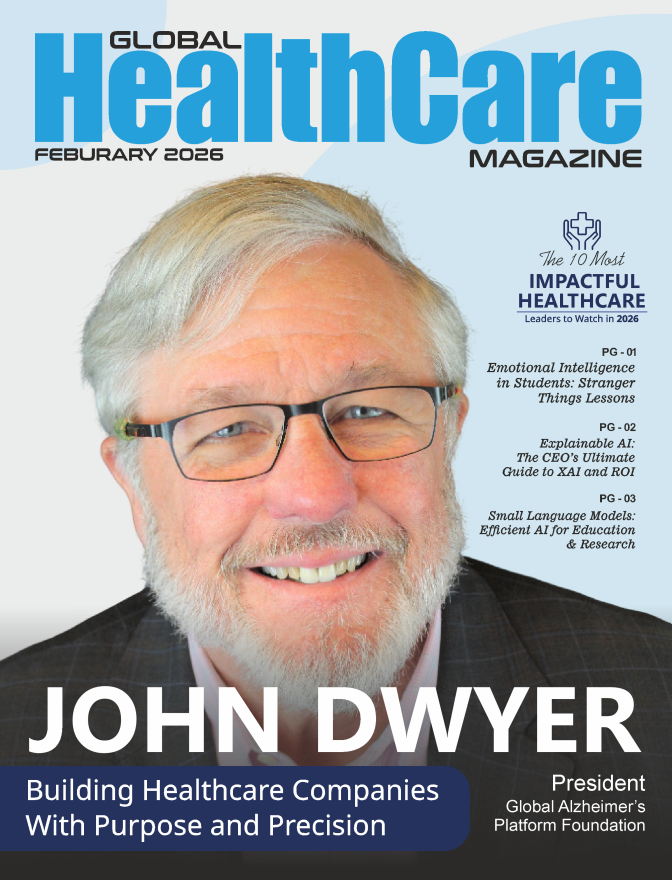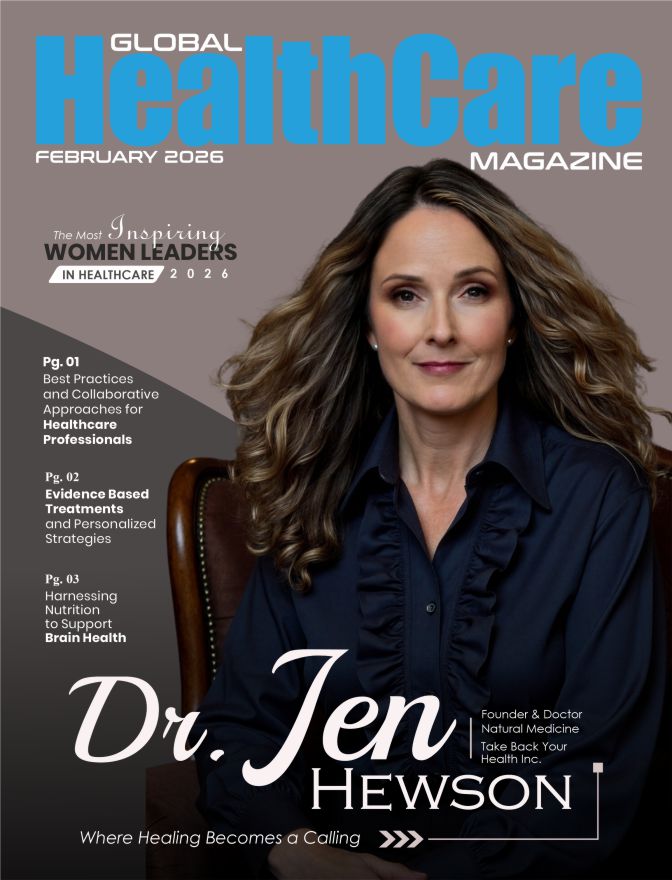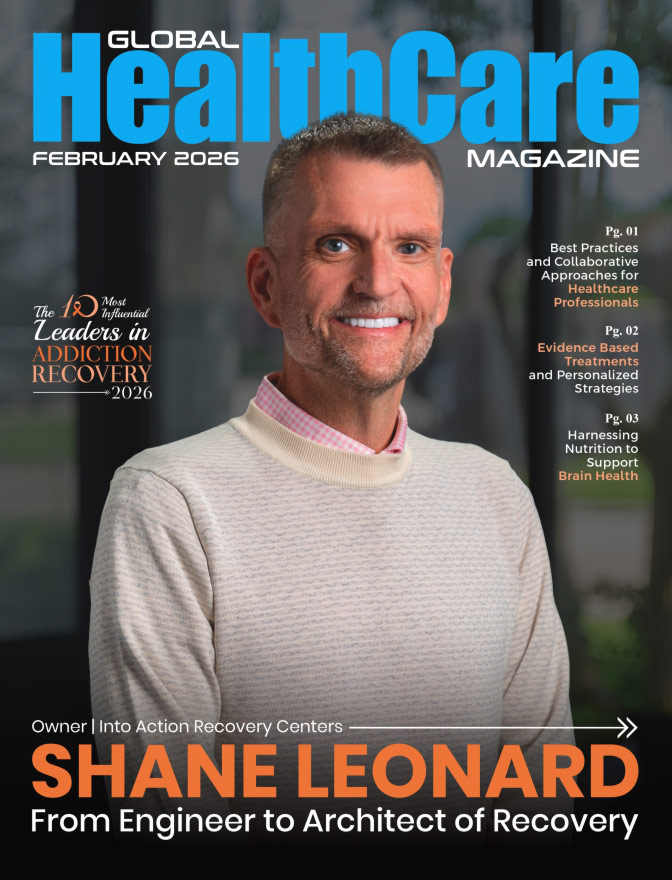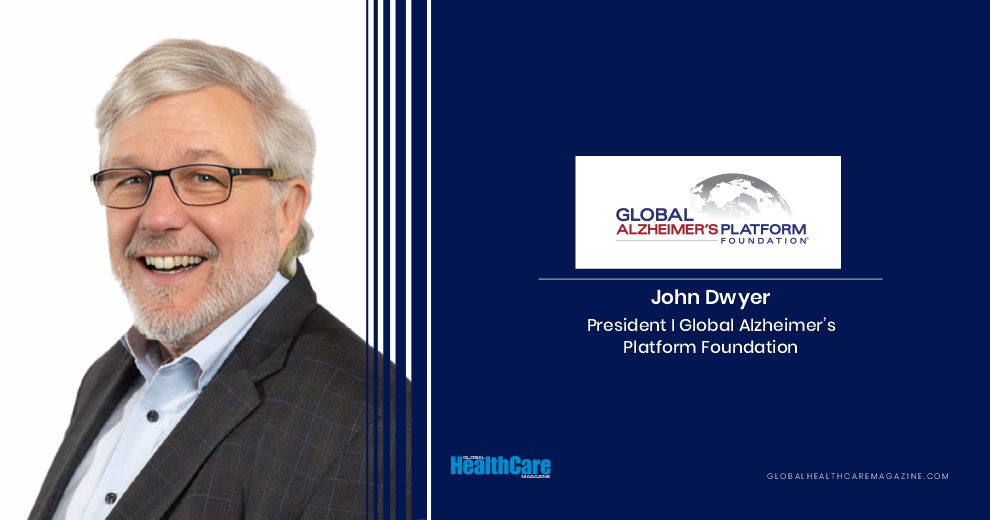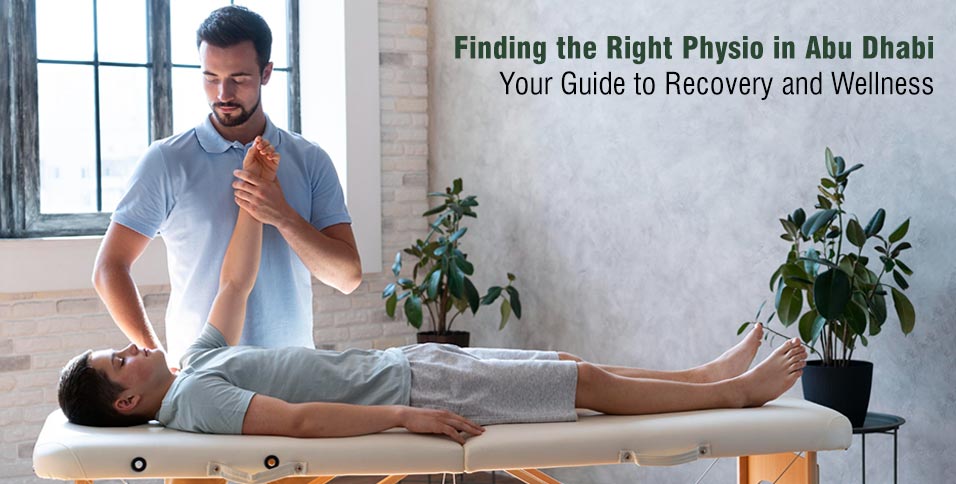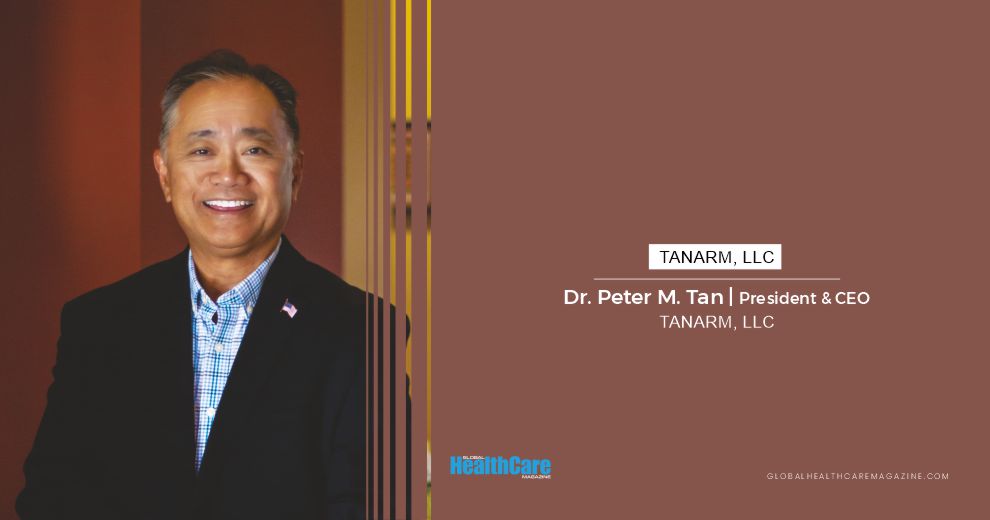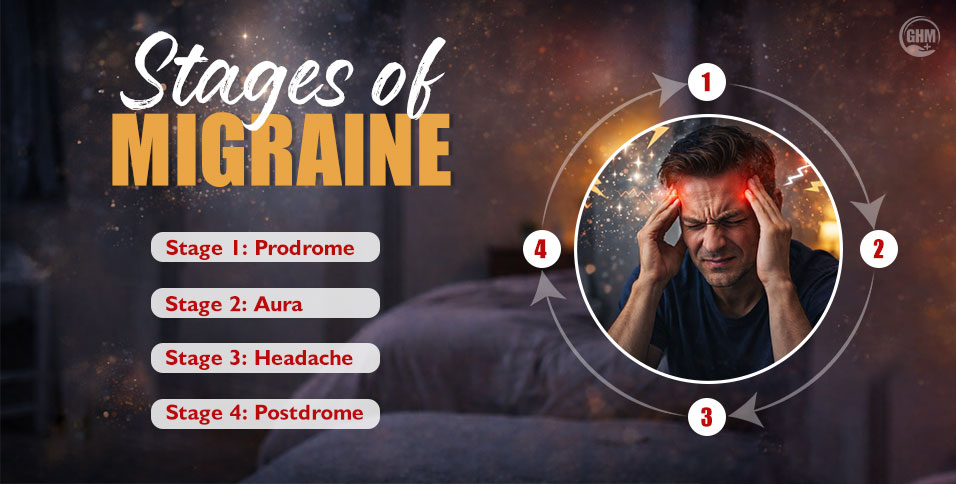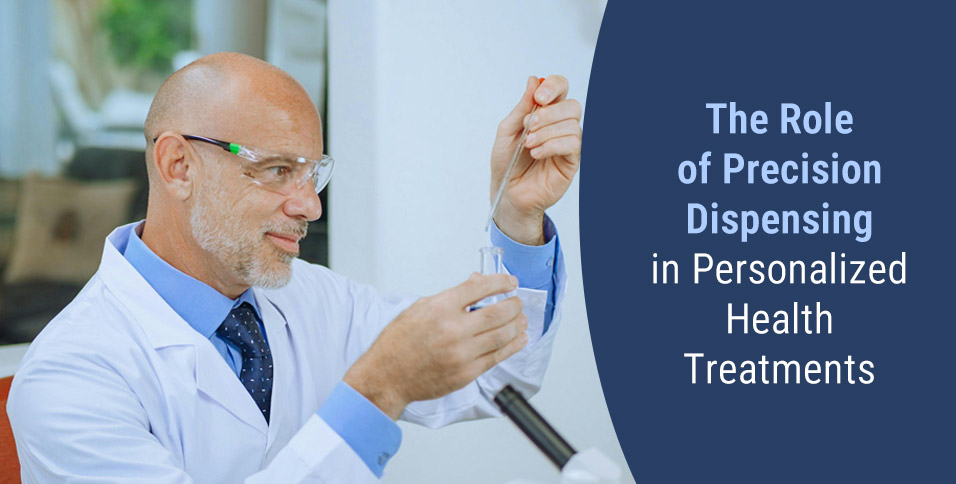In the sprawling, often impersonal world of disability services, Rriyan Salvator, founder of Ainim Support Services (AINIM), is building an oasis of empathy. Her work is about scaling humanity, reminding us that at the heart of healthcare is, simply, care.
There’s a certain quiet intensity to Rriyan Salvator. It’s not the sharp, demanding presence of a typical CEO, but a softer, more observant energy. It’s the kind of focus that makes you feel heard before you’ve even said much. This, you soon realize, is not just her personality; it’s the entire philosophy behind AINIM, the organization she built from the ground up. In a sector often criticized for being clinical and labyrinthine, Rriyan has cultivated a space grounded in a radical idea: that support should feel human.
“I’ve always believed that support should feel human, not clinical or cold,” Rriyan says, her voice steady and clear. “That belief has shaped everything we do at Ainim.”
Her work, centered in the bustling hubs of Melbourne and now extending its reach to Perth, is a direct response to a gap she saw and felt viscerally. It’s for the people navigating the choppy waters of psychosocial disabilities—anxiety, depression, PTSD, schizophrenia, bipolar disorder—who often feel like they’re navigating alone. They are handed plans and appointments, slotted into systems, but their stories, their humanity, can get lost in the paperwork. Rriyan’s mission began with a simple desire to change that. She saw people falling through the cracks of a system not built for the nuances of mental illness.
“We don’t come in with all the answers,” Rriyan clarifies. “We come in to listen, to walk alongside them, and to help where we can.” It’s a philosophy of presence, of showing up when things are hard and staying when others might step back. This work, she insists, is personal. And in a world clamoring for disruption and innovation, her quiet, heart-led approach feels like the most profound innovation of all.
The Unplanned Path to a Calling
Like many profound journeys, Rriyan’s path into mental health and psychosocial support wasn’t meticulously planned. It was a gradual unfolding, a calling that grew louder with every story she heard and every person she met. “I’ve always been drawn to helping people,” she reflects, “the kind of help that goes beyond ticking boxes or filling in forms.”
Rriyan started in the community sector, where she was quickly immersed in the lives of people with significant mental health challenges. It was there she witnessed a disheartening pattern: a system that provided services but often failed to provide genuine connection. People felt invisible, their recovery measured in appointments kept rather than hope restored. The introduction of the National Disability Insurance Scheme (NDIS) was a breakthrough, opening doors and providing funding. Yet, it also brought a new layer of complexity, a confusing bureaucracy that was especially overwhelming for those already struggling with their mental health.
This is where Rriyan found her mission. “That’s when I knew this wasn’t just a job for me—it was a calling,” she states. The moment of crystallization came from a simple, powerful interaction with a participant who had been shuffled through multiple services for years. He looked at her and said, “You actually listen. You don’t make me feel like a number.”
That sentence hit her hard. It was the spark. She realized that while there were many providers, there was a deficit of those who were truly people-first, who led with compassion and consistency. Ainim Support Services was born from this realization. It didn’t start in a boardroom with a slick business plan, but with a laptop, a lot of heart, and a foundational question: “How can we do better for people living with mental health challenges?”
The name itself, “AINIM,” is a quiet nod to its purpose, a blend of meanings hinting at healing, connection, and the powerful spirit within: All I Need Is Me.
It’s a reminder of the organization’s core belief in empowering individuals to find their own strength, with a steady hand to help guide the way.
More Than a Service, a Circle of Support
AINIM was built slowly, carefully, and always with heart. Rriyan started small, supporting a handful of participants one-on-one. There was no fancy office, no marketing team. There was just a steadfast belief that things could be done differently, and better. She focused on building real, trusting relationships, and slowly, word got out. The growth was organic, driven by the very community she aimed to serve.
Today, AINIM’s mission remains simple and unshakable: “To provide honest, heart-led support that empowers people with psychosocial disabilities to live with purpose, independence, and dignity.” This mission is delivered through three core offerings under the NDIS framework.
- Psychosocial Recovery Coaching: This is one of AINIM’s flagship services. It’s a deeply personal and practical form of support for people with conditions like schizophrenia, PTSD, bipolar disorder, and severe anxiety. Many participants come with histories of trauma, homelessness, or frequent hospitalizations. The recovery coach’s role isn’t to dictate a path, but to walk alongside the person, helping them build structure, stay connected to their goals, and rediscover a sense of hope. “We talk to participants about what recovery looks like for them,” Rriyan explains. “It could be something as big as finding stable housing or something as small as building a morning routine. Either way, we take it seriously.” The cornerstone of this service is trust and consistency, ensuring participants feel they have a reliable ally, especially when they are struggling.
- Support Coordination: The NDIS is a powerful tool, but its complexity can be a major barrier. This is where Ainim’s support coordinators step in. They help people understand their NDIS plans, connect them with the right therapists, housing providers, or community groups, and advocate for them during plan reviews. What sets Ainim’s approach apart is its commitment to clarity and patience. “We don’t speak complex languages,” Rriyan notes. “We’re patient, and we follow up.” The goal is to empower participants to the point where they can make their own informed choices, reducing their reliance on others.
- Capacity Building Supports: This service is focused on developing daily life skills and building confidence. It’s tailored to each individual’s goals, whether that’s learning to use public transport, managing a budget, cooking, or learning to self-advocate in meetings. The approach is patient and paced to the individual. “What matters is that we keep showing up and celebrating every small win along the way,” Rriyan adds.
This focus on psychosocial disability is not a side service for AINIM; it is their core work. They don’t rotate staff constantly, so participants don’t have to keep retelling their traumatic stories. They are flexible, adjusting support based on a person’s needs, not a rigid schedule. And they understand that mental health exists within a wider context of family and community, working to build stronger support networks, especially within multicultural communities where stigma can be a powerful force.
Navigating a System Not Built for Them
Leading this work is not without its immense challenges. The very system Ainim operates within, the NDIS, presents constant hurdles. “The NDIS was originally built for people with physical disabilities,” Rriyan explains. “While the system has improved…it still doesn’t fully fit the needs of people with mental health conditions.”
The linear, checkbox-style structure of NDIS plans doesn’t align with the fluctuating nature of mental health recovery. “Some weeks people are doing really well. Then the next week, they might struggle to get out of bed,” she says. “That doesn’t mean they’re not making progress, it just means recovery is a journey. But the system doesn’t always understand that.” Ainim’s team often finds itself in the difficult position of having to “translate” a person’s complex, non-linear journey into language the system will accept.
Other significant challenges include:
- The Burden of Proof: Gaining access to the NDIS requires strong evidence of a psychosocial disability, yet many individuals who have been living with serious conditions for years lack a formal diagnosis or a consistent medical history, creating a heartbreaking barrier to support.
- Lack of Understanding: Mainstream service providers often lack specialized training in mental health, leading to negative experiences for participants who may be judged, misunderstood, or turned away, deepening their sense of isolation and mistrust.
- Inconsistent Plan Reviews: Rushed or poorly understood plan reviews can lead to participants having their support downgraded or cut, even when their situation hasn’t improved, creating instability and fear.
- Sector Burnout: The emotionally heavy nature of the work leads to high rates of burnout. Salvator combats this by focusing heavily on staff wellbeing, providing regular check-ins, debriefing sessions, and a culture of self-care. “We know that if our team is not well, they can’t give their best to participants,” she says.
- Systemic Gaps: A critical lack of crisis services and appropriate supported housing options leaves many participants in precarious situations, such as homelessness or unsafe living conditions. The NDIS does not fund crisis intervention, forcing Ainim to advocate tirelessly between hospitals, police, and case workers.
- Pervasive Stigma: Perhaps the most profound challenge is the shame that still surrounds mental illness, which can make people hesitant to even ask for the help they are entitled to.
Despite these systemic frustrations, Rriyan and her team persist. “We keep showing up,” she affirms. “Because we know the difference it makes when someone finally feels seen, heard, and supported.”
The Heart of Leadership
As the founder and CEO, Rriyan’s role is not confined to a corner office; it is hands-on, personal, and deeply connected to her team and the people they serve. She balances the high-level strategic vision with the crucial day-to-day work of maintaining the organization’s soul.
Her responsibilities are a blend of strategy and heart. She provides direct leadership and support to her team, not just giving directions but guiding and checking in, ensuring they feel valued. She steers the company’s strategic direction, asking critical questions about where they are going and how they can improve, always grounding decisions in their core mission. She maintains a close watch on service quality, taking all feedback seriously as an opportunity to learn and improve. And she remains a fierce advocate, speaking up about gaps in the NDIS and standing in the gap for participants.
Balancing these demands requires a disciplined rhythm. Rriyan sets clear weekly priorities, delegates with trust to her strong team, and regularly steps back to reflect on the bigger picture. But her true north is a simple question she returns to again and again: “Is this helping the people we set out to help?”
Success, at AINIM, is not measured by spreadsheets alone. It’s measured in the tangible, human indicators of progress: a participant’s growing stability and confidence ; the achievement of personal goals, big and small ; high participant satisfaction gathered through regular, genuine feedback ; the trust demonstrated by word-of-mouth referrals ; and the wellbeing and retention of her staff.
This holistic view of success is what keeps AINIM grounded. “Success for us isn’t about ticking boxes or hitting big business targets,” Rriyan emphasizes. “It’s about making a real difference in someone’s life.”
Breaking the Silence, Building the Future
A key part of AINIM’s work extends beyond service delivery into education and awareness. Rriyan knew from the beginning that breaking the silence around mental health was crucial, especially in multicultural communities where the topic is often taboo.
AINIM’s approach to awareness is multifaceted and community-focused. It starts with one-on-one conversations with participants and their families, gently educating them about the nature of psychosocial disability. It extends to having a physical presence at community events, expos, and multicultural festivals, where the team engages people in friendly, face-to-face conversations. They use social media not for polished corporate messaging, but to share real stories, simple definitions, and gentle reminders that it’s okay to seek help.
Collaboration is also key. AINIM partners with other NDIS providers, community groups, and youth organizations, sharing knowledge and resources to reach those who might not trust traditional healthcare settings. Rriyan also participates in industry forums and workshops and writes to MPs and decision-makers, using the power of real stories to advocate for systemic change.
Looking ahead, Rriyan’s vision for Ainim is one of intentional, heart-led growth. A major upcoming initiative is becoming an approved aged care provider, aiming to bring their unique brand of psychosocial support to older Australians. They are also focused on deepening their community engagement in Perth, building the same level of trust and connection they have established in Melbourne. And they plan to host more community events, like the upcoming “All Abilities Day,”to foster inclusion and continue the conversation about mental health.
Through it all, the focus remains on investing in her team and staying true to the values that started it all. “No matter how much we grow, our core purpose stays the same,” Rriyan says. “AINIM was started to give real, meaningful help to people who were being overlooked.”
The Leader Outside the Office
In a field that demands so much emotional energy, how does the leader recharge? Rriyan admits it’s not always a perfect balance, but it’s about being present wherever she is. When she’s off the clock, she unplugs. Family comes first, and simple moments like sharing a meal or going for a walk keep her grounded. Nature is her sanctuary, a place to find calm and clarity. She also finds release in creative outlets like music and writing.
Crucially, she has learned to set boundaries to protect her energy. “It’s okay to say ‘not right now’ when I need time to rest,” she says. “This doesn’t mean I care any less. It just means I want to show up properly when it matters.” It’s the same advice she gives to the people Ainim supports, and she makes a conscious effort to live by it.
There’s a quote Rriyan Salvator often comes back to: “People don’t care how much you know until they know how much you care.” This simple, profound line is the key to her leadership and the essence of AINIM. In her, you don’t see a leader driven by ego or ambition, but one propelled by a deep, unwavering empathy. She is not pretending to have all the answers. She is simply leading with heart, doing the slow, kind, and essential work of showing up for people, again and again. The world, Rriyan believes, doesn’t need more perfect leaders. “It needs more honest ones. More compassionate ones.”
Quotes

Also Read: The Most Prominent Mental Healthcare Leaders to Watch in 2025

